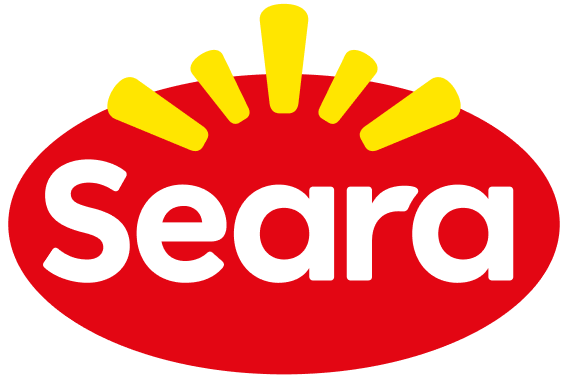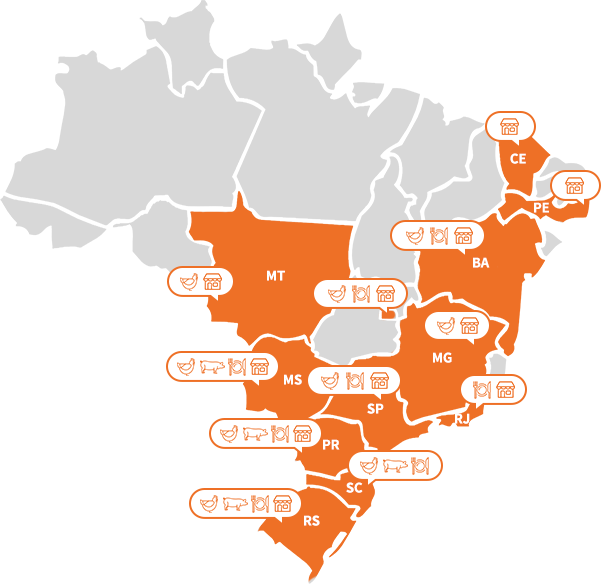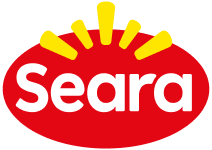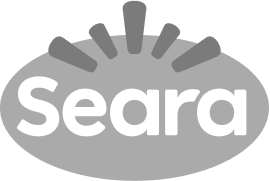Contact us

Introducing Seara, part of the JBS,
the worlds' largest animal protein producer.
-

60 Years
Feeding the world &
people -

5.1M
Slaughtered birds per day
approximately -

25.3K
Slaughtered hogs per day
approximately -

130개
Number of exporting
countries worldwide
Seara is one of the major brands of JBS Group,
the global No. 1 protein producer.
For over 60 years, Seara has been feeding the world and people with the best there is. We take excellence and innovation, every day, to more than 130 countries through our products and services, in several channels such as retail, food servicing, processing factories and distribution.
Being one of the major brands of JBS Group, the world’s largest animal protein producer (beef, lamb, pork, poultry) and also a major player of plant-based protein, Seara has an extensive portfolio of fresh poultry and pork products and prepared foods.
From the origin to the consumer’s table, Seara is committed to quality and food safety.
Seara has received some of the highest international certifications in recognition of the excellency in production: BRC (British Retail Consortium), SWA (Supplier Workplace Accountability), Global GAP (Global Certificate for the Agricultural Chain), Swiss Law, ISO 14001, Halal Certifications, among others.
Check out the certification mark that guarantees the best quality!
Fresh
chicken and pork are
made daily in Brazil.
-

87,800
Team members -

30Poultry
Processing units -

8Pork
Processing units -

22Prepared
food units -

17Distribution
centers -

1Port
(Itajaí – SC)

-

Our goal is to
surprise with quality.JBS strives for the highest quality assurance internally and externally.
We implement a grading system to monitor the quality of our products, and our
management level has been recognized by federal inspection agencies,
including through certificates issued by the Ministry of Agriculture. -

We constantly strive
for the best products.We continue to invest in R&D while focusing on product quality.
Raising chicken in optimal conditions with grain feed. -

More thorough and
strict management.We strictly manage all stages of the livestock breeding production process,
from genetic selection and processing to product sales.
Through this, we effectively control and manage hygiene, nutrition,
and even food safety.
-

Sustainability
We operate a business that
Learn More
considers the responsible use of
natural resources, food safety,
the well-being of people and
animals, and the planet's health. -

Eco-Friendly
From the beginning of the production
to the product delivery, we strictly
control the process to guarantee
it is entirely eco-friendly. -

NET ZERO 2040
JBS announced our global
Learn More
public commitment to being
Net Zero by 2040.
Animal Welfare
We respect and protect
the fundamental freedoms
of animals throughout the
production process to keep
our ethical commitment to
animal welfare.
The commitment to ensuring animal welfare is among the priorities of JBS’ global agenda, respecting the demands of customers, consumers and society, and also the precepts of valuing life. The Company’s operations are benchmarked to best practices and, are in line with the five fundamental freedoms of animals, as defined by the Farm Animal Welfare Council (FAWC). The Company creates partnerships with producers around the world to ensure they abide by this agenda, while also maintaining specialized species-specific teams that adopt constantly revised techniques and encourage producers to provide the animals with the best treatment possible.
Five fundamental animal freedoms
- 1. Freedom from hunger and thirst
- 2. Freedom from discomfort
- 3. Freedom from pain, injury or disease
- 4. Freedom to express normal behavior
- 5. Freedom from fear and distress
At all processing units, multidisciplinary teams are responsible for ensuring compliance with the policies and procedures required by animal welfare programs. Any violations of the Company’s Animal Welfare Program (Programa de Bem-Estar Animal) by team members or suppliers may result in disciplinary processes that could lead to termination of employment or contracts with suppliers.
All operations comply with local laws and technical standards, as well as the principles of animal freedom and humane slaughter. For commercial reasons, the company adopts religious guidelines that respect the cultural characteristics and diversity of the markets in which it operates.
Our Pig Farm

Our Chicken Farms

We practice transparent management
Check out Seara's results and institutional presentations
Sustainability
We operate a business that considers the responsible use of natural resources, food safety, the well-being of people and animals, and the planet's health.
Sustainability is the foundation of our business strategy, so that our actions can generate positive impacts for team members, suppliers, customers, society and the planet. We are fully committed to quality in our products, from the farm to the fork. In 2021, we made our most significant environmental commitment: to become Net Zero by 2040. We are going to achieve net zero greenhouse gas emissions by reducing direct and indirect emissions, while offsetting residual emissions. We have pushed ahead with renewable energy in all our operations. Solar energy is arriving at our facilities, as well as electric trucks.
JBS also has a high-profile position in the circular economy, like the production of biodiesel and organic fertilizer from the waste produced by our production processes. Around 50% of the total waste generated by our global operations was recycled in 2020. The group company has zero tolerance with deforestation. For more than 10 years we have been monitoring 100% of our suppliers. And, in 2020, we took a major step to ensure a supply chain free from illegal deforestation at the using blockchain technology. Transparent Livestock Farming Platform will also enable us to extend socioenvironmental monitoring to all our suppliers and suppliers of our suppliers.
NET ZERO 2040
JBS announced our global public commitment to being Net Zero by 2040. JBS will invest more than $1 billion in incremental capital expenditures over the next decade in emission reduction projects by reducing direct emissions in its facilities.
In 2021, JBS announced our global public commitment to being Net Zero by 2040. To accomplish its net-zero goal, the company will adopt several strategies to achieve reductions in emissions, including.
- Reducing direct emissions in its facilities: JBS will reduce its global scope 1 and 2 emission intensity by at least 30% by 2030 against the base year 2019.
- Investing in the future: JBS will invest more than $1 billion in incremental capital expenditures over the next decade in emission reduction projects. The company will engage its team members and award funding for projects to its facilities using a panel consisting of company executives, specialists, and academics.
- Eliminating deforestation: JBS will eliminate illegal Amazon deforestation from its supply chain – including the suppliers of its suppliers – by 2025 and in other Brazilian biomes by 2030. The company will achieve zero deforestation across its global supply chain by 2035.
- Using 100% renewable electricity in its facilities: JBS will join RE100 and convert to 100% renewable electricity across its global facilities by 2040.
- Fostering innovation: JBS will invest $100 million by 2030 in research and development projects to assist producer efforts to strengthen and scale regenerative farming practices, including carbon sequestration and on-farm emission mitigation technologies. This investment will contribute to reducing scope 3 emissions across the value chain in our efforts toward net zero.
- Compensation tied to environmental goals.








